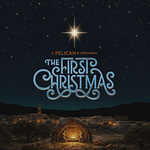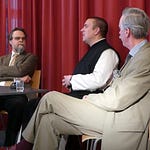This lecture is a full-on defense of the primacy of tradition as ultimate norm. The consistent practice of the Catholic Church over the centuries has been to carry along with her whatever is already part of her life — and the more so, the more universally it permeates the body of the faithful. The longer the tradition, the more certain it is to be true, fitting, and beneficial; new practices are to be admitted only when they refine, crystallize, amplify, or otherwise enhance traditions already in place. Catholics therefore have an obligation to value the whole of their tradition at every level, because all of its elements constitute the beautiful and subtle tapestry of the Faith. It is not only misleading but dangerous to make too sharp a distinction between what is “essential” or “primary,” and what is “accidental” or “secondary.” The entire liturgical reform of the 20th century rested on exaggerating and eventually discarding this distinction.
[This lecture, with minor changes, has been given under a number of titles: (1) Tradition Reviled and Recovered: A Study of False Assumptions about Substance and Accident; (2) Tradition as Ultimate Norm: Clearing up Confusion about Essentials and Incidentals; (3) It’s Not Just a Matter of the Heart: Why What We Do and How We Do It Matters So Much in the Liturgy. The version recorded here was given under the title “Dew, Tears, and Torrents: The Living Waters of Tradition,” in May 2019 at the Sacred Liturgy Conference in Spokane, Washington.]












